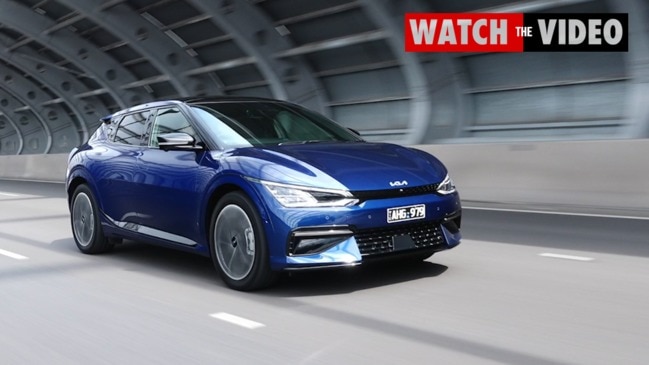Doubt grows over Labor’s electric vehicle targets
An energy expert has questioned Labor’s ability to reach its electric car projections without stronger policy levers.

A leading energy expert has cast doubt on the ability of Labor to reach its electric car projections without significantly stronger policy levers such as fuel emissions standards or subsidies.
Grattan Institute director Tony Wood urged Labor to release the assumptions of the modelling conducted by RepuTex that shows its policies would see electric vehicles making up 89 per cent of new car sales by 2030. The predicted 600,000 sales a year by 2030 is more than 200 per cent above Scott Morrison’s projections.
The assumption from Labor’s modelling is well above former leader Bill Shorten’s target for electric cars to make up 50 per cent of new car sales by 2030, which the Prime Minister declared would “end the weekend”.
“On the basis of everything I have seen, which is not the RepuTex modelling, I can’t see how you get that level of uptake in that period of time,” Mr Wood told The Australian.
The Morrison government predicts its policies would see electric vehicles account for 29 per cent of new car sales by 2030, up from less than 1 per cent last year.
While Mr Shorten pledged to introduce vehicle emissions standards to help electric cars be more cost-competitive, Anthony Albanese has not adopted the policy.
Instead, Labor has vowed to waive the import tariffs and luxury car taxes for electric vehicles, while also exempting them from fringe benefits tax when bought by businesses.
Labor is also planning to implement a 75 per cent electric car target by 2025 for federal government vehicles.

Mr Wood said Labor’s tax exemptions for electric vehicles would offer “a relatively modest discount” and he wanted to see how the 89 per cent assumption could be justified.
“I would like to see the basis on which they can see it is believable,” Mr Wood said.
“It seems like a very bold assumption. We would have assumed to get anything like an uptake like that you are going to either need an emissions standard that enforces it or a pretty generous subsidy.
“I would want to know on what basis do they justify the connection between the assumption and the result.”
Labor is planning to release a national electric vehicle strategy while in government, which could put more contentious policy levers off until after the election.
Mr Wood joined other energy experts who have questioned Labor’s claim that its policies would not lead to the early closure of coal-fired power stations.
A spokeswoman for opposition energy spokesman Chris Bowen said Labor’s plan had the “most comprehensive modelling an opposition party has done for any policy”.
“RepuTex are the country’s pre-eminent energy economists, counting Australia’s biggest corporations as well as key government agencies as their clients, including the Prime Minister’s own department,” the spokeswoman said.
“They were also involved in modelling the government’s current 2030 target.”





To join the conversation, please log in. Don't have an account? Register
Join the conversation, you are commenting as Logout